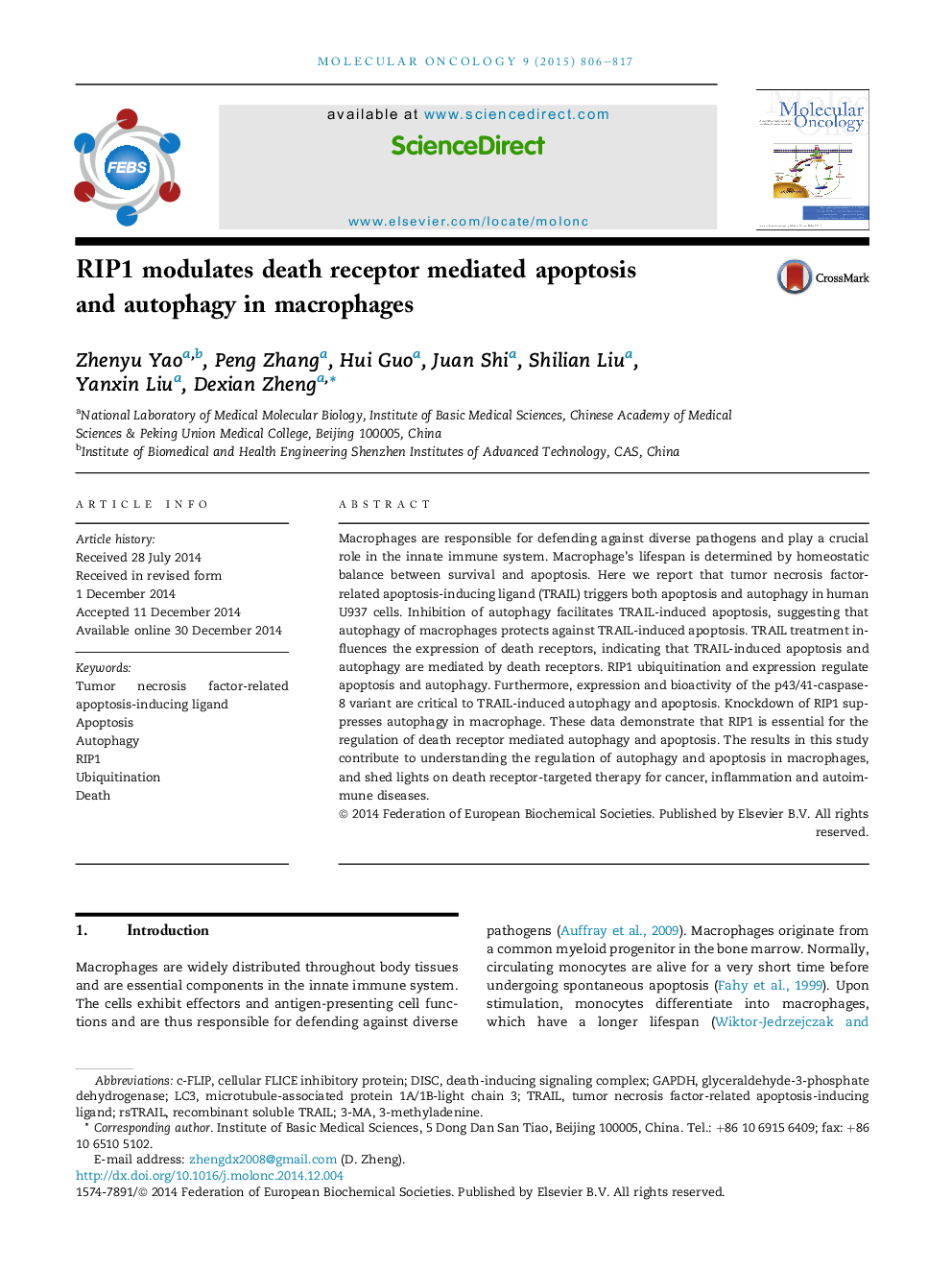| Article ID | Journal | Published Year | Pages | File Type |
|---|---|---|---|---|
| 2145552 | Molecular Oncology | 2015 | 12 Pages |
•TRAIL induces both apoptosis and autophagy in macrophages.•TRAIL-induced apoptosis and autophagy mediated by death receptor in macrophages.•RIP1 expression and ubiquitination dynamically regulate apoptosis and autophagy in macrophages.•RIP1 is an essential regulator of apoptosis and autophagy in macrophages.
Macrophages are responsible for defending against diverse pathogens and play a crucial role in the innate immune system. Macrophage's lifespan is determined by homeostatic balance between survival and apoptosis. Here we report that tumor necrosis factor-related apoptosis-inducing ligand (TRAIL) triggers both apoptosis and autophagy in human U937 cells. Inhibition of autophagy facilitates TRAIL-induced apoptosis, suggesting that autophagy of macrophages protects against TRAIL-induced apoptosis. TRAIL treatment influences the expression of death receptors, indicating that TRAIL-induced apoptosis and autophagy are mediated by death receptors. RIP1 ubiquitination and expression regulate apoptosis and autophagy. Furthermore, expression and bioactivity of the p43/41-caspase-8 variant are critical to TRAIL-induced autophagy and apoptosis. Knockdown of RIP1 suppresses autophagy in macrophage. These data demonstrate that RIP1 is essential for the regulation of death receptor mediated autophagy and apoptosis. The results in this study contribute to understanding the regulation of autophagy and apoptosis in macrophages, and shed lights on death receptor-targeted therapy for cancer, inflammation and autoimmune diseases.
Graphical abstractFigure optionsDownload full-size imageDownload high-quality image (201 K)Download as PowerPoint slide
